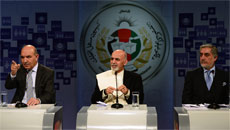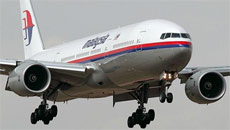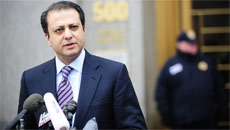How did it happen?
That's the big question as federal health officials investigate the case of a Dallas health worker who treated an Ebola patient and ended up with the disease herself.
These are professionals and this is the United States, where the best conditions and protective gear are available, unlike in West Africa, where the Ebola epidemic is raging in much poorer conditions.
The health worker wore protective gear while having extensive contact with Thomas Eric Duncan, the Liberian man who died Wednesday of Ebola at Texas Health Presbyterian Hospital.
Officials say she has not been able to pinpoint any breach in infection control protocols, although there apparently was a breach, they say.
Experience shows that health workers can safely care for Ebola patients, "but we also know that it's hard and that even a single breach can result in contamination," Dr. Thomas Frieden, director of the Centers for Disease Control and Prevention, said Sunday on CBS' "Face the Nation."
The situation also raises fresh concerns about whether any U.S. hospital can safely handle Ebola patients, as health officials have insisted is possible.
Some questions and answers about the new case.
Q: What protection do health workers have?
A: The exact gear can vary. A hazardous material type suit usually includes a gown, two sets of gloves, a face mask, and an eye shield. There are strict protocols for how to use it correctly.
"When you put on your garb and you take off your garb, it's a buddy system," with another health worker watching to make sure it's done right, said Dr. Dennis Maki, University of Wisconsin-Madison infectious disease specialist and former head of hospital infection control.
Q: How might infection have occurred?
A: Officials are focusing on two areas: How the garb was removed, and the intensive medical procedures Duncan received, which included kidney dialysis and a breathing machine. Both involve inserting tubes — into blood vessels or an airway. That raises the risk a health worker will have contact with the patient's bodily fluids, which is how Ebola spreads.
"Removing the equipment can really be the highest risk. You have to be extremely careful and have somebody watching you to make sure you remember all the steps," said Dr. Eileen Farnon, a Temple University doctor who formerly worked at the CDC and led teams investigating past Ebola outbreaks in Africa.
"After every step you usually would do hand hygiene," washing your hands with antiseptic or being sprayed with a chlorine spray, she said.
Q: How else could infection have happened?
A: Some of the garb the health worker takes off might brush against a surface and contaminate it. New data suggest that even tiny droplets of a patient's body fluids can contain the virus, Maki said.
"I can have on the suit and be very careful, but I can pick up some secretions or body fluids on a surface" and spread it that way, he said.
Q: Can any U.S. hospital safely treat Ebola patients?
A: Frieden and other health officials say yes, but others say the new case shows the risks.
"We can't control where the Ebola patient appears," so every hospital's emergency room needs to be prepared to isolate and take infection control precautions, Maki said.
That said, "I don't think we should expect that small hospitals take care of Ebola patients. The challenge is formidable," and only large hospitals like those affiliated with major universities truly have enough equipment and manpower to do it right, Maki said.
"If we allow it to be taken care of in hospitals that have less than optimal resources, we will promote the spread," he warned.
The case heightens concern for health workers' safety, and nurses at many hospitals "are alarmed at the inadequate preparation they see," says a statement from Rose Ann DeMoro, executive director of the union, National Nurses United.
Q: Should Ebola patients be transferred to one of the specialized centres that have treated others in the U.S.?
A. Specialized units are the ideal, but there are fewer than half a dozen in the nation and they don't have unlimited beds. "It is also a high-risk activity to transfer patients," potentially exposing more people to the virus, Farnon said.





